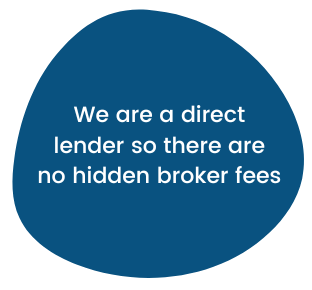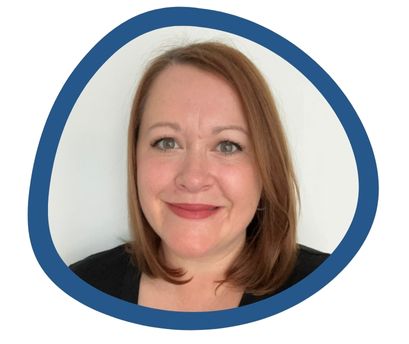
What is a HMO limited company mortgage?
A HMO limited company mortgage is the same as a standard HMO mortgage, but the loan that is assigned will be repaid by the company rather than the individual themselves.
These mortgages allow you to secure a mortgage against a HMO property, which you pay back over a period of time. As you will be using a company to repay the loan, the conditions on your loan may differ to a standard HMO mortgage. For example, you may face higher interest rates with these loans depending on your lender.

Am I eligible for a HMO limited company mortgage?
If you own a company or identify as the director of a company, you are eligible for a HMO limited company mortgage.
How much deposit do I need for a HMO limited company mortgage?
Most lenders offer up to 75% LTV for a HMO mortgage, so you would need at least a 25% deposit.
Can I set up a limited company to get a HMO limited company mortgage?
Yes, companies which are set up for the purpose of property investments are referred to as SPVs (Special Purpose Vehicles).
What are the advantages of setting up a limited company for a HMO mortgage?
An advantage of setting up a limited company for a HMO mortgage is that your personal and business finances will be separate. This could make income more manageable.
Another advantage of setting up a limited company for a HMO mortgage is the potential tax savings that you may incur. Individuals who own property without a limited company have their profits from rental income taxed via income tax. However, investing in property through a limited company your profits will be taxed via corporation tax. This tends to be much lower than income tax (corporation tax is currently at 25%), depending on your personal tax bracket.
In addition, getting a HMO mortgage with a limited company may be the ideal solution for those who are looking to expand their property portfolio. If you are a higher rate taxpayer then you could end up saving money by investing in a HMO mortgage with a limited company. As previously mentioned, profits on properties which are owned by limited companies are not taxed by your income tax but are taxed on corporation tax. This is roughly half of the higher rate of income tax. Therefore, getting a HMO mortgage through a limited company could potentially save you money if you are a higher taxpayer.
Another advantage of setting up a limited company for a HMO mortgage is that there is asset protection. This means that because the company owns the property, when there are financial difficulties, the company’s assets are at risk and not the individuals.
What are the disadvantages of setting up a limited company for a HMO mortgage?
On the other hand, if you are a basic rate taxpayer who owns a couple of properties, you may be paying roughly the same in corporation tax as you are in just income tax alone. However, it is worth noting that if your salary increases or you begin to earn more profit from your properties, you may go from paying the basic tax rate to the higher tax rate. This means that getting a limited company would be preferential if you are forecasted to earn more profit or are expected to earn a higher salary as you would be paying less tax through corporation tax.
Many lenders tend to charge higher interest rates for these type of mortgages as these mortgages are seen as niche in comparison to a regular HMO mortgage. As a result, fewer lenders offer this type of mortgage, so there is limited choice.
Before considering a HMO mortgage with a limited company it is important to remember that there are other additional costs with these types of mortgages. For example, you could be charged additional tax like stamp duty, land tax and extra legal costs.
Enquiring is easy

How Mercantile Trust could help
As a specialist lender, we always aim to help those where other lenders can’t. That’s why we offer HMO limited company mortgages. Whether you have had credit issues or have other reasons why you are unable to borrow, we could find the right HMO mortgage for you. Our HMO mortgages start from £10,000 up to £500,000.
There is no limit on the number of bedrooms with our HMO mortgages, so if you are looking to mortgage a large HMO property, we could help. We also help with Multi Unit Freehold Blocks up to 6 storeys.
Call our free number on 0800 032 3737 to speak with an experienced advisor, they could get you the HMO limited company mortgage that is most suited to you.
Ready to enquire?
Talk to our mortgage experts now
Ready to enquire?
- Friendly UK based advisors
- Enquiring won't affect your credit rating
- Funds possible in 48 hours
- No annoying phone menus, call an advisor direct
- We are a direct lender, no hidden broker fees

Tara Evans, Director of Operations
01923 280199
Frequently asked questions
A buy to let mortgage is a finance agreement that allows you to purchase a property in order to rent it to a third party.
A regular residential mortgage does not let you rent the property out, unless you gain the permission of your mortgage lender. Whilst residential lenders may give you permission if you ask for it, there will often be an additional charge to do so.
Buy to let mortgage affordability calculations are assessed on the potential rental income of the property i.e. how much rent can be charged for the house or flat / apartment being purchased. This means that your personal income is less of a factor.
The only exception is if you are a first time buyer, where personal income is assessed, in order to protect those who are new to property investment from over-stretching themselves financially.
Lenders will want to see that applicants do have some form of personal income, but many don’t have a minimum income requirement, so if you have retired and are on pension income, or you are self-employed and have a low income, or your personal income is low for any other reason, you may still be eligible for a buy to let loan.
When you speak to a buy to let mortgage lender direct, the process for getting a buy to let mortgage generally includes similar steps.
First of all, you would speak to a mortgage advisor for the lender, who will discuss how much you want to borrow, how much deposit you have to put down, and the rent you are receiving for the property (if you are remortgaging) or expect to receive (if you are purchasing).
The advisor will also ask you about the property in more detail, your experience in property (e.g. do you own your own home, do you own other properties), your financial situation and credit history.
This information helps a lender advisor assess whether you are a match with their criteria. Lenders build a picture of the type of property and applicant they are willing to lend to, this is their "criteria".
If your application matches the lender criteria, the property you are investing in will be valued and if the valuation matches the borrowing calculation for a deal the lender can offer you, they will grant you a "decision in principle" (DIP) or "agreement in principle" (AIP).
A DIP or an AIP simply means that if you proceed with an application and all other details you have provided meet the lenders approval, you will be offered a mortgage.
It is very important that all the information you provide is accurate, because if it isn't, the lender may be unable to accept your application.
There will be documents a lender requires from you to support your application, proof of affordability (e.g. tenancy agreement and proof of rent into a bank account), proof of your identification (if electronic checks fail) and signed lender documentation.
Once all the documents are back with the lender, the case will be processed and funds paid to you.
The amount of deposit you have available can have a significant impact on your mortgage.
The larger your buy to let mortgage deposit, the lower amount of credit you will need to borrow. If you borrow less money, your monthly payments and interest rates could be lower and the total amount you repay could be reduced.
The reason the cost or a mortgage is typically lower with a larger deposit, is because the lender takes on less of the risk than if they were lending to someone who wanted to borrow at a higher loan to value with a lower deposit.
The buy to let mortgage rate you are offered depends on a number of factors unique to your case. This includes your financial situation, the rental income of the property you’re looking to purchase, how much you’re expecting to borrow, your credit profile and whether you’re borrowing for a first or second charge mortgage.
Because of the amount of factors considered, buy to let mortgage rates can vary. Whilst you can input details about the borrowing you need into various online buy to let mortgage rate comparison tables, they usually cannot overlay the lender criteria, so you may be looking at a product you are not eligible for.
Having a discussion with a lender directly, will help you find out if you qualify for their products, and which product specifically from amongst their range.
Having a discussion with a broker, who has access to an extensive breadth of lenders, will help you establish the most competitive deal you can secure from across the buy to let marketplace.
If you want to raise some extra cash and release some equity from an existing mortgaged rental property, a second charge buy to let mortgage could be the ideal solution.
Whether you want to raise the money for a deposit for your next property, to renovate an existing property or for any other reason at all, a second charge buy to let mortgage is a great way to get the capital you need, fast.
A second charge mortgage sits alongside your existing buy to let mortgage product without affecting it. It is an alternative to remortgaging.
Always be prepared for times when there’s no rent coming in
In the life of any rental property, there will almost certainly be periods when there is no tenant and no rent is being received. It is essential to plan ahead for these times (known as “voids”) as you will still be required to make your mortgage repayments in order to retain the property.
During the times you are receiving rent, transfer some of it to a savings account and keep this account topped up whenever possible. This money can be used to make mortgage payments during voids, or to cover any unexpected repair bills such as blocked drains or a broken boiler.
Never rely on the sale of the property to repay its mortgage
Assuming that you will be able to sell a property in order to repay the mortgage can be a risky trap to fall into. Even in a buoyant economy there is always the danger of house prices dropping. If this was to happen, you may not be able to sell your property for as much as you anticipated, and you would still have to cover the difference on the outstanding mortgage.